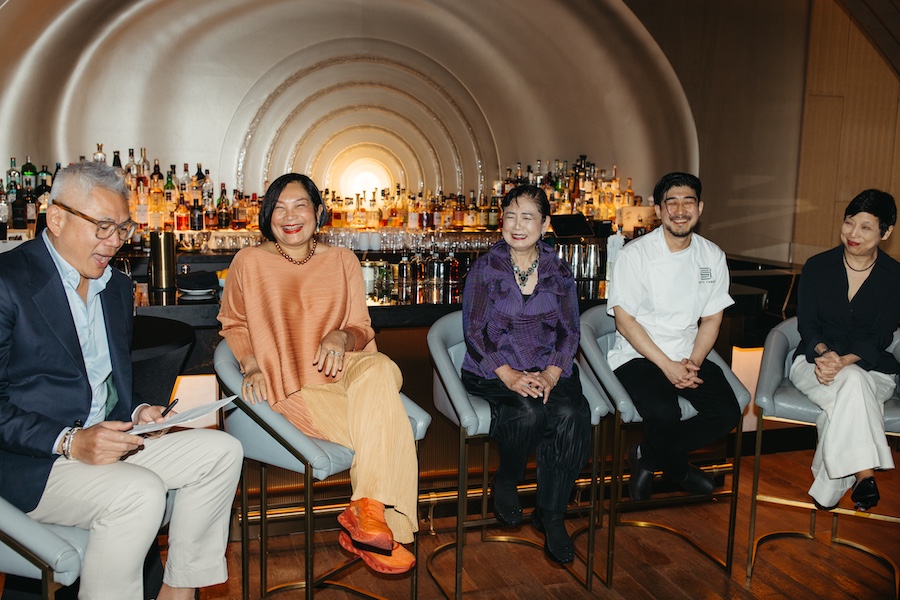In honor of Asian American Pacific Islander (AAPI) Heritage Month, a dynamic conversation unfolded at 53—a contemporary Asian restaurant in Midtown Manhattan designed by ICRAVE—spotlighting AAPI culinary leaders who are shaping the hospitality industry.
The discussion—moderated by William Li, special projects editor at ELLE Decor and Town & Country—delved into topics of identity, authenticity, and the evolving landscape of representation in food and hospitality.
Food as identity and heritage
The panel began with a playful but revealing question from Li: “If your journey were a dish, what would it be?”
Mark Yu, executive chef at 53, reflected on the comforting bowls of ramen that carried him through the long hours of restaurant life, while Ellen Yin, founder of High Street Hospitality, recalled the dumplings she grew up making with her mother—an early link between food and family. For Saori Kawano, founder and president of Korin, it was the sushi hand rolls her mother used to prepare.
The answer for Nok Suntaranon—the chef-owner of Philadelphia’s Kalaya, who took home the James Beard Award for Best Chef: Mid-Atlantic—was khao yam, a colorful Thai rice salad symbolizing the complexity and vibrancy of her path from flight attendant to award-winning chef. “The color is the people who came into my life. The complexity of the flavor is how we make change and touch people’s lives,” she shares.
What authenticity means to them
The question of authenticity emerged as a central theme—who gets to define it? Is it about tradition, taste, technique, or all of the above?
In a particularly candid moment, Suntaranon shared: “How authentic can I be? I cook home-cooked food—the food I would cook for my family. I cook with flavors I grew up eating that [evoke] the feeling of going home to eat my mother’s curry.” At Kalaya, she says, “We don’t give people what they want. We give them what I want.”
Yu emphasized the importance of honoring technique, especially from the last generation of dim sum chefs he works with, while also adapting to modern palates. “We don’t take shortcuts. We build our flavors to order,” he explains.
Yin, whose restaurants span beyond Asian cuisine, noted that for much of her career, she didn’t categorize herself as an “Asian woman in hospitality” until recent events forced her to reflect more intentionally on her role and voice. “Until 2020, I don’t think I really felt strongly about my identity as a woman and as an Asian,” she says. “But [the spa shootings] in Atlanta, made me question myself.” This reflection led to the creation of the Wonton Project, a ghost kitchen concept that combats AAPI discrimination.
Inspiring the next generation
The panelists spoke about mentorship, representation, and their hopes for the next decade.
Yu emphasized the importance of preserving culinary traditions while making space for new interpretations in order to sustain AAPI presence in the industry. He closed with a call to honor the generation that inspired him, and to be that inspiration for the next.
“I want us to have more seats at the table,” Suntaranon adds. “I hope that what I do today inspires young Asian girls to get out there and do something big.”
More from HD:
Pastoral Elegance Awaits at New Jersey’s Pendry Natirar
Denver’s Populus Hotel Moves the Needle on Sustainability
What I’ve Learned Podcast: Caroline + Sabri Farouki



